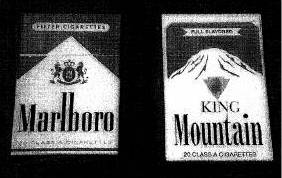
On June 11, the Ninth Circuit amended its January 20 opinion (STL discussion here) in the case of Philip Morris USA, Inc. v. King Mountain Tobacco Co., Inc. The question was whether colorable tribal court jurisdiction existed over a non-tribe member’s trademark claims against tribal defendants for alleged passing off of cigarettes on the Internet, on another tribe’s reservation, and elsewhere.
The Eastern District of Washington granted King Mountain’s motion for a stay, concluding there was a colorable claim to tribal court jurisdiction. In January, the Ninth Circuit reversed and remanded. In its amended decision, the court revised some of its reasoning but came to the same conclusion.
Perhaps the most notable change was in Judge William Fletcher’s concurrence criticising the majority’s opinion:
“The district court appears to have thought that sales both on and off the Yakama Reservation are at issue in this case. The district court noted in its order granting the stay that ‘Defendants began selling King Mountain cigarettes to smoke shops on the Yakama Reservation in January 2006’ and later began to make off-reservation sales. The district court concluded that because Philip Morris’s federal court suit made ‘claims against tribal members whose conduct occurred on reservation lands … there exists a colorable question of the existence of tribal court jurisdiction in this case over Philip Morris.’
“The panel majority makes clear, however, that sales by defendants of King Mountain cigarettes on the Yakama Reservation are not at issue. It writes, ‘Philip Morris’s complaint does not allege claims based on King Mountain’s sales of its cigarettes on the Yakama Reservation, although there are passing references to such sales in later pleadings.’ Because the only sales at issue took place off the Yakama Reservation, the question in this appeal is straightforward and quite narrow: Does the Yakama Tribal Court have colorable jurisdiction to decide whether off-reservation sales by tribal member defendants infringe the Marlboro trademark?
“The panel majority answers, correctly, that the tribal court does not have colorable jurisdiction. The answer is so clear that the majority could have written a simple opinion, or even an unpublished memorandum disposition, so holding. Instead, it has written an extended opinion containing a great deal of dicta. I respectfully decline to join the opinion, though I concur in the judgment.”
The case cite is Philip Morris USA, Inc. v. King Mountain Tobacco Co., Inc., No. 06-36066, __ F.3d __, No. 2009 WL 1622338 (9th Cir.) (June 11, 2009).